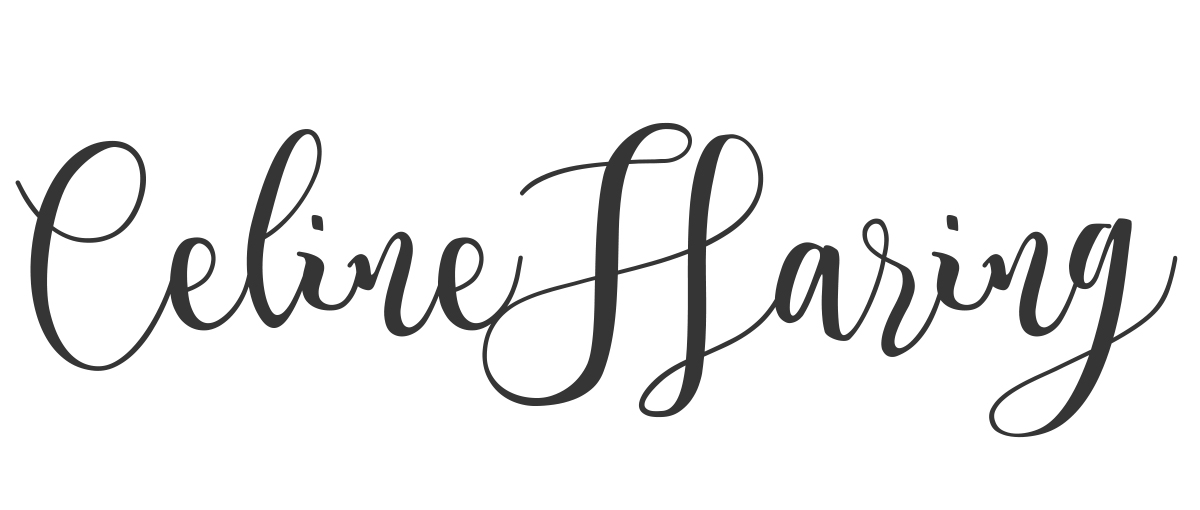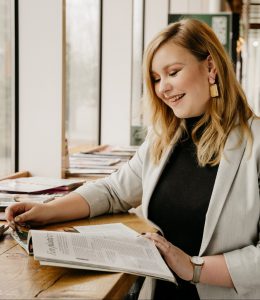Did you ever wonder what it would be like to go against your own natural personality patterns for a year? Introvert Jessica Pan, author of Sorry I’m late, I didn’t want to come, did just that. When she hit rock bottom, she decided it was time for a change. What would happen if a shy introvert like her lived her life as an extrovert for one full year? In her book she describes her hilarious and sometimes painful year of misadventures in extroverting.
What made you want to write this book?
“I reached a point in my life where I hit rock bottom. When I became a freelancer and I was alone all day. My career was stagnating and I didn’t have any friends in London, since I just recently moved there. I felt like I wanted to try for one year to see what would happen if I lived the opposite of the way that I normally do. What would change? Because I felt that what I was doing was not working for me. And so the first thing I did was talk to strangers on the street. I prowled the undergrounds, asking them who the Queen of England was. I even ended up writing about it in The Guardian, which was such a strange thing. It wasn’t a good article because of me, but because of the people on the streets of London who said all these weird things to me. That article gave me the opportunity to write this book. But no matter what, I was always planning of doing this experimental year.”
– Jessica Pan
“I have friends who don’t actually believe that I’m introvert.”
What are the biggest misconceptions about being introvert?
“I think the biggest misconception is that introverts are boring. I have no idea why people would think that. Or that they aren’t funny or interesting. I think people think it means that you’re quiet and boring and you like sitting in a corner, alone in the dark. That’s not the case at all. It just means that you prefer being alone more. I have friends who don’t actually believe that I’m introvert. I’m normal, and one-on-one things are great. But in a larger group, I would be much quieter. They can’t believe that I can be one, because I make jokes, I’ve travelled, lived abroad.”
One third to the half of the world is, according to research, introvert, but behaves extrovert. Like you did for the past year. Why do you think they feel the need?
“I think that when you act like you are extrovert, you’re perceived as friendlier. You will get noticed more at work when you’re talkative. If you tell everyone what you’re working on your boss is probably going to find out too. Whereas when you’re an introvert, working in the corner of the office, that will be harder. When you don’t tell anyone that you just landed a big account or did a big project, no one will be thinking of you. I think that’s why it helps for introverts to act like extroverts. For better or worse. I do think society favors extraverts. And I’ve met people on the way who were either doing similar things to me, because they didn’t want to limit their careers or personal lives.”
Yet you work as a freelancer in the journalism field. There’s a lot of competition there.
“Yes, and I need to work on standing out more. I do go to a lot of networking events, what I don’t love. When you walk into a room full of people you don’t know, and it feels like they’re already talking to each other. But it has become a bit easier for me, since I’ve interviewed a charisma coach as part of my research. She was explaining that most people feel that way. When an introvert walks into a room like this and they see all these people, it’s too much to take in (overstimulated is the word they use), and then they don’t know what to focus on. It’s almost knowing about that, which makes me feel like I can overcome that. I got the advice to act like it’s my own party. Walk up to people and say ‘hey, how did you get here?’, ‘do you want a drink?’ or ‘do you know her?’. I think I’m just more willing to talk to strangers after my experimental year. That really helps with my freelance work.”
In the book you write about feeling lonely.
“I still am in contact with the people who helped me write this book. That really helped me. I think the loneliness can come and go, for sure. Because of my research I now talk to my neighbors, for example. And believe me, that isn’t a thing in London. I had a lesson very early on in the year, where I learned about deep talk and small talk. I am now willing to go to deep talk with people when I meet them, in stead of just talking about the weather for example. That’s really made my connections stronger.”
You tried a lot of different things to make new friends, like apps, stand-up comedy and improv classes. What was your favorite method to get to know new people?
“Doing classes that meet regularly for five or six weeks in a row was a great way to bond with people who you would normally never meet in real life. So, I would never have done improv classes if it wasn’t for my experiment. And the first class, I didn’t really like the people who were in there with me. But because you have to keep coming back, you get to know them better. And then I really liked them in the end. Because I really am a bad judge of character when it comes to finding new friends. I need a while to warm up to people. By making use of these classes you then already have something to bond over. I also used an app called Bumble, where it’s like a Tinder for friends. That was just awkward, meeting one-on-one trying to become best friends. Where if you’re in a class, at improv for example, and you’re all nervous about your performance, you can change tips or advice.”
– Jessica Pan
“Introverts know who they are, because we self-reflect enough.”
What’s the power of being introvert?
“I think introverts know who they are, because we self-reflect enough. That’s really important, to know what we want and to really think deeply about things. I don’t think that extroverts don’t, but when you’re constantly surrounded by people it’s harder to realize what’s going on in your life or how things are changing, or how to reflect properly. Because introverts are alone more, I think we have a deeper connection to what we want and what’s happening in life.”
Would you do this experiment again?
“See, I don’t want to say that introverts should become extroverts. But I did think that for one year I’d to the experiment. I wouldn’t do the whole year again, because it drained my energy. After things like giving a speech, or talking to strangers, I really needed to be alone. I wouldn’t go out with friends, I’d go to bed straight away. I had to recharge myself. But I would try some select things again. For example, in the book I write about my performance at Union Chapel, where I gave a speech to a big audience. That was really hard for me. I had a hard time sleeping. I was anxious, didn’t want to go through with it. But I also felt like I had to, because I didn’t want to be owned by fear anymore. Now that I’ve done it, I know that public speaking will always make me anxious, but I know that I can do it. That has really changed my perception on public speaking, and I will be doing it again.”
Is there anything you’ve done in your experimental year that you’ll never want to do again?
“I wouldn’t say never, because you just don’t know. I’ll never ask strangers in London who the queen of England is again. That was straight up embarrassing, although probably good for me. The psychologist who gave me the assignment was absolutely right that nothing bad happened to me. People might have thought I was dumb, but that was it. I also am not keen to go back up on stage and do stand-up comedy, but if I needed to or had a great idea, I might do that.”
What is it that you value the most about the past year?
“Two things. Definitely the confidence that I gained, by doing these things that always terrified me and I always thought I hate. The confidence feels invaluable. And also realizing that people are a lot nicer than you think they’re going to be. Like when I had to humiliate myself talking to strangers on the street. I thought people were going to be mean to me, make fun of me or call me an idiot. But they were all actually nice. And then meeting new people that I normally would never connect with. Going through life thinking that people are nice and kind is so much happier than thinking they are boring or mean.”

